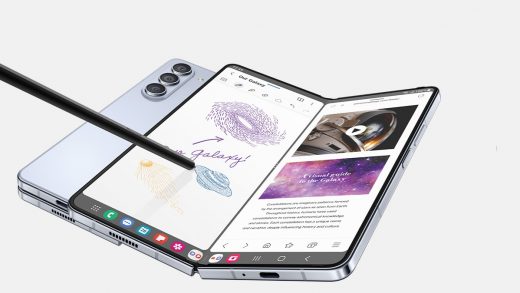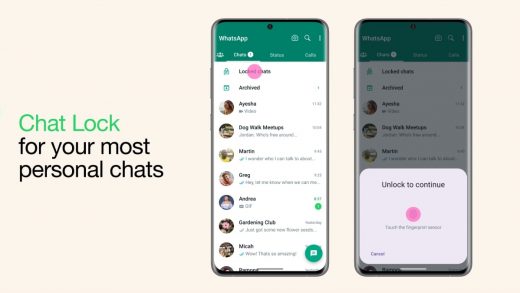
Manufacturers like Samsung and Xiaomi have been playing with the idea of foldables for several years; buyers have been waiting for the various technologies that make these foldables work to become more reliable. Is 2023 that year? Well, it surely seems that way. While Samsung has dominated the foldable segment, delivering new models and upgrades year after year, it was expected that Chinese smartphone players would catch up at some point and possibly even leap ahead. Meanwhile, Apple has yet to take its first step into the brave and bold world of foldable smartphones.
If you want to know whether Chinese foldable smartphones have leapt ahead of Samsung in terms of technology and practicality, make sure to read my reviews of these smartphones. But for now, it is easy to point out that there are many more players in the foldables smartphones segment in India in 2023 compared to the past.
We have brands like Motorola, which launched not just an ultra-premium model like the Razr 40 Ultra (Review) but also an affordable option like the Razr 40, which makes foldable display technology and its advantages available and accessible to more buyers. Then there’s Tecno, which recently launched its second foldable phone called the Phantom V Flip (Review), priced even lower than Motorola’s affordable offering.
We then saw Oppo announce a newer and upgraded version of its Find N series clamshell foldable, called the Find N3 Flip, which replaces the Find N2 Flip, which was launched just seven months prior.
More recently, we witnessed the global launch of the OnePlus Open, the brand’s first foldable ever in Mumbai, India, which speaks volumes about how global players are perceiving the Indian market.
Speaking to Shilpi Jain, Senior Analyst at Counterpoint Research, she explains that foldables, in general, are commanding a strong consumer mind share even if they currently contribute to less than 1 percent of the overall market.
“In 2023 (till September), foldables constituted 11 percent of the ultra-premium (above Rs. 45,000) Android smartphone shipments, a number projected to surge to 35 percent by the end of 2025,” she said.
“Localisation of manufacturing, exemplified by flagship devices like Samsung Z Fold 5 and Flip 5 being produced in India, is fuelling the market’s growth. OnePlus joining the club with its Open will further drive the overall market share of foldables.”
And with so many brands selling different types of foldable smartphones in essentially two form factors (horizontal foldables and clamshell or vertical foldables), you might be confused about which form factor is suitable for your use case.
I have been using both the OnePlus Open, essentially a horizontal foldable smartphone, and the Oppo Find N3 Flip, a clamshell-type foldable side-by-side. While their reviews will be coming soon, I have used, reviewed and compared other foldables smartphones in the past. With that in mind, here is a quick and helpful guide on things to keep in mind when choosing your first foldable smartphone!
Bigger displays… are not always a good thing
Thanks to flexible display technology, opening up to three apps at a time on a foldable smartphone’s inner or main display is now possible. The OnePlus Open, with its near 1:1 aspect ratio inner display, offers enough space for comfortably running two apps in split mode or even three apps side-by-side with a fourth one in a pop-out window.
To a casual user, this would mean having Google Maps open in navigation mode, giving out directions, WhatsApp running in another window for chats, and possibly a third window (slide to access) running Spotify for some music, all happening at once. When it comes to work, you can have apps like Slack, Outlook and Chrome open at the same time (which can also be connected to a wireless keyboard and mouse) if you want for a mini on-the-go office.
While the large displays on these horizontal foldables seem ideal for multitasking, it’s not exactly the best when it comes to entertainment. This is mainly because of the aspect ratios of these inner folding displays. The inner displays on most foldable smartphones have a mostly squarish aspect ratio. Consuming video streaming content (often shot in widescreen or 16:9) on the main inner display also shows a lot of letterboxing (above and below), making a large chunk of the screen space useless unless you are multitasking with another app.
![]()
Vertical folding smartphones like the Oppo Find N3 Flip (above) seem better suited for video consumption
On this note, Samsung’s implementation with its Galaxy Z Fold 5 with a more rectangular 5:6 aspect ratio inner folding display makes it a bit more tolerable for viewing videos and playing games, but it’s not as wide as the Pixel Fold‘s passport-like form factor which lets its inner display open out into a more suitable 6:5 aspect ratio, which is better suited for entertainment.
In fact, I’ve found myself consuming video on the outer display of the OnePlus Open and finding the taller or wider aspect ratio (21:9) of the Find N3 Flip’s display more comfortable and practical when streaming video. You also have to keep in mind that smaller clamshell foldables weigh less compared to the bigger models, so they are more comfortable to hold up for longer periods.
Going big with cover displays
Most manufacturers have begun offering better and bigger cover displays, especially on clamshell-style foldable smartphones. The function of this cover display has gone from showing the essentials such as time or date (from the flip phone days) to running full-fledged Android apps today on smartphones like Motorola’s Razr 40 Ultra.
![]()
Motorola’s Razr 40 Ultra can run full-fledged apps on its cover display
Cover displays are a lot more useful on horizontal folding smartphones as their portrait layouts are usually tall enough to be used as regular-sized smartphones, with the internal display aiming for a tablet-like layout when needed. Well-optimised cover display software also ensures better battery life as it reduces the need to access the inner display when using or interacting with one app at a time.
Cover displays also work better with games (designed for wider 16:9 aspect ratios), which will always have tougher and more damage-resistant glass.
Software and support are equally important
Another detail to keep in mind when choosing between horizontal and clamshell foldables is that most Android apps are better suited and designed to be operated on the latter than the former because of the natural portrait orientation of the inner display when flipped open.
With clamshell foldables, the software optimisations are mainly to do with the switching of apps between the main display and the cover display. Motorola’s Razr 40 Ultra is still the only one to get this done flawlessly, no matter which app or game one is using. Dealing with notifications is also a lot easier and as good as what’s available on the home screen of the main folding display.
![]()
Samsung’s Galaxy Z Flip 5 is not the best foldable when dealing with notifications despite its large cover display
Even in 2023, most third-party apps do not offer tablet support, meaning that they aren’t designed from scratch for tablets like on Apple’s iPads. Google has finally started supporting foldables with some of its native apps by redesigning their layouts after the launch of its Pixel Fold. However, most third-party apps will simply stretch to both edges of the inner display instead of smartly splitting up the screen.
Depending on the device you pick, software optimisations by the manufacturer will also play a huge role in your foldable experience when apps transition from the outer display to the inner display and vice-versa. So don’t be surprised if your favourite app appears letterboxed on the left and right sides and appears in a portrait layout on the wide inner display. It’s something you will have to deal with until apps like Instagram officially begin supporting a foldable-friendly or tablet-like layout.
Almost regular battery life… and some more
Manufacturers have struggled over the years in their quest to provide better battery life with foldables while maintaining strictly compact form factors. This is all thanks to space restrictions and the fact that they can get really heavy and chunky in a folded state, which in many ways made earlier clamshell foldables redundant.
![]()
Samsung’s Galaxy Z Fold 5 lasts more than a day when it comes to battery life
However, advances in processors and battery technology have now made it possible to get a whole day’s juice and even more from a foldable smartphone. But even with the latest models, like the OnePlus Open and the Oppo Find N3 Flip, or the Samsung Galaxy Z Fold 5 and the Galaxy Z Flip 5, horizontal foldables do offer much better battery life than their flippable and compact clamshell counterparts. Bigger horizontal foldables have even become efficient enough to operate a large display and deliver more than a day of battery life, which makes them attractive for power users.
The camera is king?
With the latest foldable models from Samsung, OnePlus, Oppo and Motorola, it is possible to get good quality photos from a foldable, but given the more real estate that horizontal foldables have over clamshell models with their larger overall surface area, manufacturers are able to pack in more and better imaging capabilities into the bigger foldable models.
![]()
The Oppo Find N3 Flip is the first clamshell foldable to have three rear cameras
Engineers have to squeeze in sufficiently sized batteries, a hinge that holds it all together and then also squeeze in a couple of cameras in an area which is smaller than the footprint of a wallet in the case of a clamshell foldable. Oppo recently became the first smartphone manufacturer to squeeze in three rear cameras into a foldable smartphone, but its counterpart, the OnePlus Open, is definitely equipped with larger sensors and better capability. In short, horizontal foldables are always a better choice if you are looking for better cameras in a foldable.
Of hinges and IP ratings
Engineers behind these modern-day marvels also have to check the aesthetics, which would need these devices to offer the multi-tasking capabilities of a tablet while weighing as much as a regular smartphone. The foldable form factor has to have super-slim designs when unfolded and be slim enough when folded, which is gradually becoming a reality with devices like the OnePlus Open.
This is all possible because of the complex hinge mechanism, the part which connects the two halves of a foldables, be it big or small. While older hinge designs focussed more on protecting the inner flexible display, newer designs aim to accomplish the same but in a more compact form factor.
This allows both halves of a foldable fold to shut without any visible gap, reducing the overall thickness of the device when folded. And since they are made up of fewer aero-space grade parts, the new hinge designs are also more resistant to getting jammed after accidental drops, which has been a problem with foldable devices or along.
![]()
The OnePlus Open is both slim and light for a foldable device but has no official IP rating
The hinge and overall design also bring up the topic of IP ratings or resistance to dust and water. In this regard, it’s mostly a choice between Samsung and Motorola’s foldables. Samsung offers an IPX8 rating for water resistance to splashes and rain but little or no resistance to heavy dust or sand. Motorola’s foldables also offer an IP52 water-repellent design, which offers basic protection against dust and water. So, if you plan on using your smartphone in a dusty factory or at a construction site, a foldable is not the ideal tool for the job.



